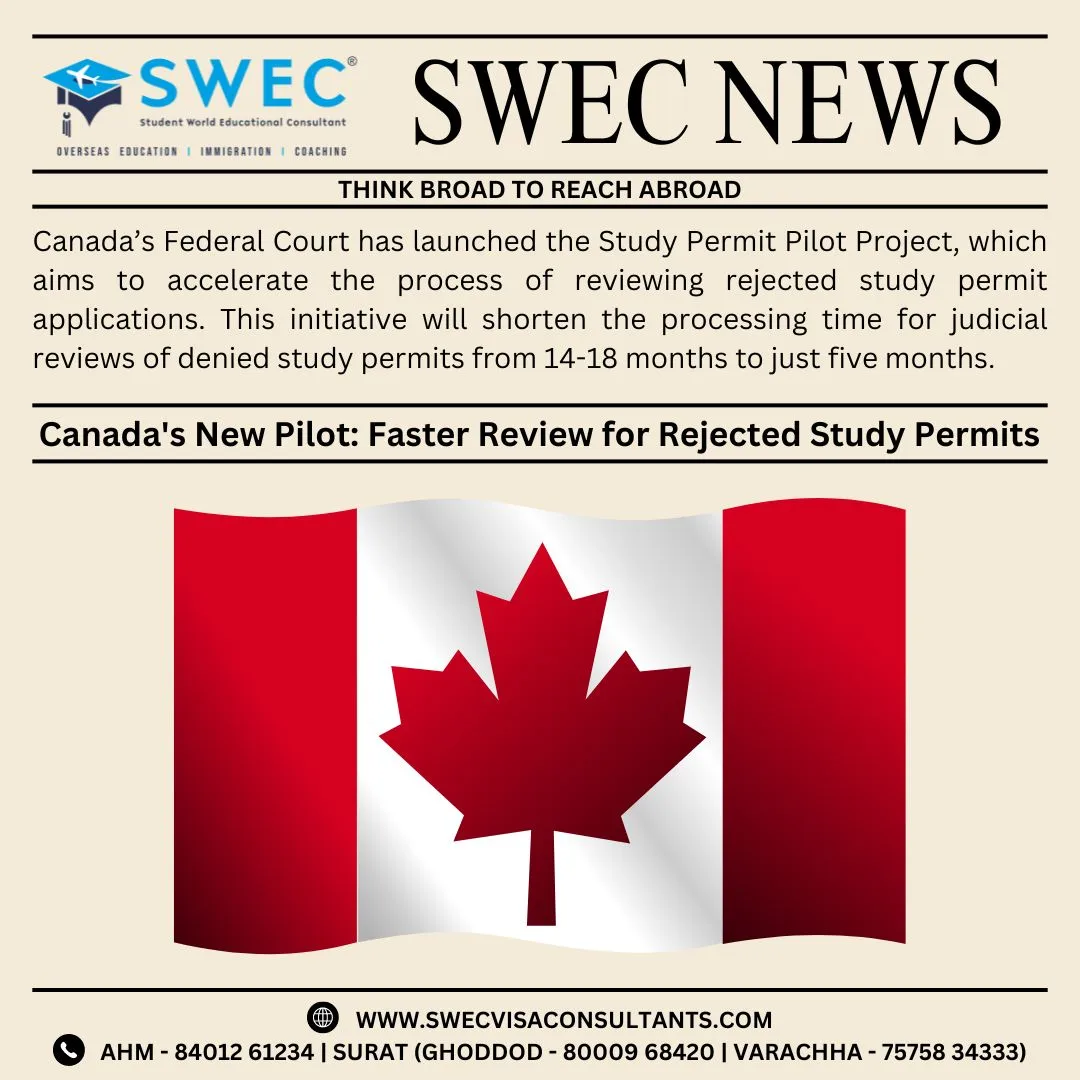Canada’s Federal Court has launched the Study Permit Pilot Project, which aims to accelerate the process of reviewing rejected study permit applications. Starting from October 1st, 2024, this initiative will shorten the processing time for judicial reviews of denied study permits from 14-18 months to just five months.
What Is the Study Permit Pilot Project?
The Study Permit Pilot Project allows students who have had their study permit applications rejected to seek a faster judicial review. Under the typical process, an applicant must first request leave (permission) for a review, and if granted, the case is examined further. With this new pilot, both steps will be handled simultaneously, cutting down the processing time.
Eligibility Criteria
To qualify for the Study Permit Pilot Project, applicants must meet the following conditions:
- They must have received a study permit rejection from Immigration, Refugees, and Citizenship Canada (IRCC)
- Both the applicant and IRCC must agree to participate in the pilot project.
- The case must be simple, with no legal issues like inadmissibility or national security concerns.
- The applicant must file within the required deadlines (15 days for applicants within Canada and 60 days for those outside).
- No new evidence can be introduced, and affidavit evidence is not permitted.
How to Apply for Judicial Review
To apply for judicial review under the pilot project, eligible individuals must:
- Submit the Application for Leave and Judicial Review through the Federal Court’s online filing system using Form IR-1.
- Clearly indicate participation in the pilot project at three specific points in the application form.
- Ensure all documents are submitted within the appropriate deadlines.
Once filed, a judge will review the case and issue a decision. There are no additional fees beyond the standard $50 filing fee.
Why Did Canada Launch the Pilot Project?
This initiative is a response to the rising number of immigration cases being filed in Canada. The Federal Court anticipates 24,000 immigration filings by the end of 2024, four times the average from the years before the COVID-19 pandemic. The pilot project will help manage this influx and provide quicker resolutions for students affected by study permit denials.
What Does It Mean for International Students?
This pilot project offers international students a faster and more efficient way to challenge their study permit rejections. By reducing the judicial review timeline, students can avoid long delays and gain quicker access to education in Canada.
Conclusion
Canada’s new Study Permit Pilot Project is a promising development for international students who have faced study permit refusals. By streamlining the judicial review process and cutting down the time required to assess cases, this initiative offers a quicker path for students to challenge IRCC decisions. Eligible applicants should act quickly, ensure they meet the criteria, and take advantage of this opportunity to resolve their study permit issues faster and more efficiently. To Know more you can contact us
FAQs
1. What is a judicial review?
A judicial review is a legal process where an individual asks the Federal Court to reconsider a decision made by a government body, in this case, Immigration, Refugees, and Citizenship Canada (IRCC).
2. How long does the review process take under the pilot project?
The review process will take approximately five months, compared to the usual 14-18 months.
3. Who is eligible for the pilot project?
To be eligible, you must have received a rejection for your study permit application from IRCC, and both you and IRCC must agree to participate in the pilot. The case must also be straightforward, with no legal complications.
4. Can I introduce new evidence during the review process?
No, new evidence (such as affidavits) cannot be introduced under this pilot program.
5. How much does it cost to apply for judicial review?
The standard filing fee for an Application for Leave and Judicial Review is $50. There are no additional fees for participating in the pilot project.
6. What are the deadlines for filing a review?
You must file within 15 days of receiving your study permit refusal if you are in Canada, or 60 days if you are outside Canada.
7. What happens after I submit my application?
A judge will review your application and notify you of the decision.





